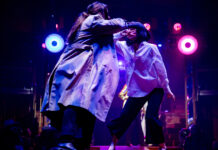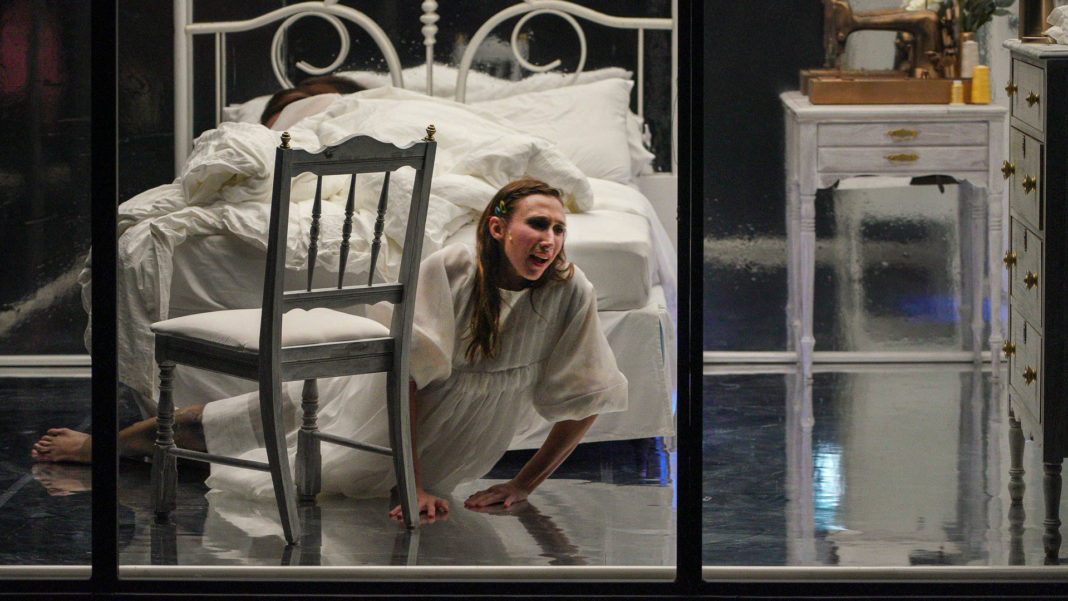Composers, for the most part, get all the glory when it comes to opera. There’s rarely love for the librettist. Take for example the 2018-2019 season brochure for LA Opera. There are only two works where the librettist is credited. One is The Loser which is having its West Coast Premiere in February. The other is p r i s m which has its world premiere beginning Thursday at REDCAT as part of LA Opera’s Off-Grand program. Roxie Perkins, a writer/director/artist, makes her first foray into opera with her libretto for p r i s m. The music was written by Ellen Reid. Beth Morrison Projects presents with LA Opera.
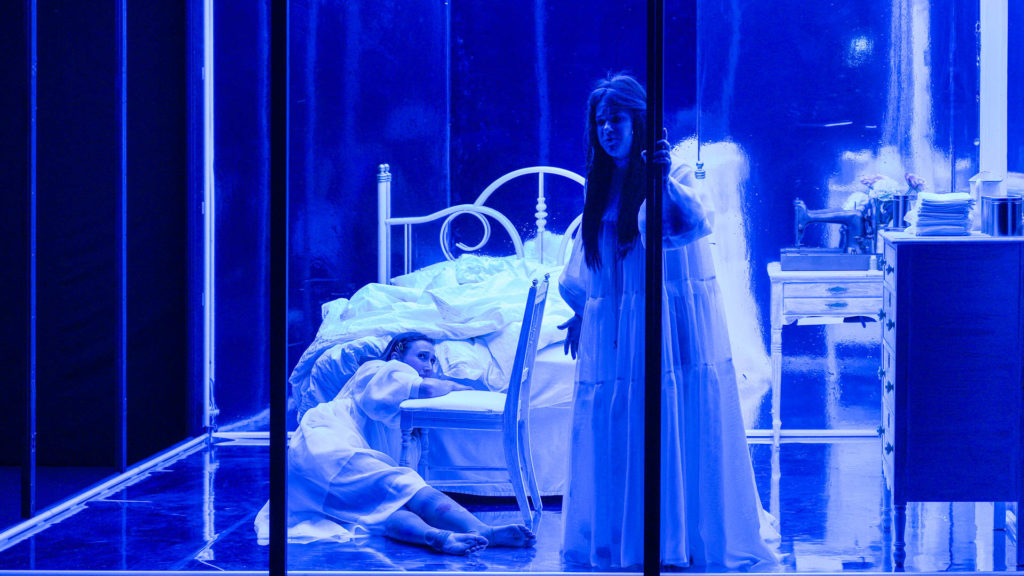
p r i s m uses a mother-daughter story to explore a sexual assault survivor’s memories. Anna Shubert plays the daughter, “Bibi” and the role of the mother, “Lumee,” is played by Rebecca Jo Loeb. James Darrah directs and the performances are conducted by Julian Wachner.
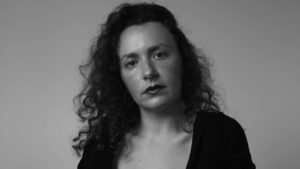
I spoke by phone with Perkins immediately following Monday evening’s rehearsal. We discussed the nature of the story in p r i s m, her collaboration with Reid and why librettists just can’t get any love.
Why drew you and Ellen Reid to each other?
I think we’re both really intense. I think we’re interested in the same kind of thematics and we both use our work to explore form. She writes a lot of different types of music. I similarly work in a lot of different mediums. We were interested in narratives about strong women and not in a stereotypical tough bitch kind of way, but strong, complex female narratives that deal with trauma.
Did you go in specifically wanting to explore a sexual assault survivor’s memories?
Yes and no. It started more from thinking about a mother and daughter story. Then I feel, like in almost all of my work, I’m interested in the lies and stories people construct to survive and the power of that delusion. We first started talking about that and then getting the back story. That’s how it emerged.
How did the two of you work together on this?
What came first was the text. It was a long writing process where I would write the libretto and give it to her and she’d give me feedback. But no music at that point. We were talking story and feeling and we spent a lot of time on that. Maybe she was writing and I didn’t know. Once the music happened, then I rewrote a lot of things and we went back and forth quite a bit. Her score is incredible.
Not having seen p r i s m yet, how did you balance when the trauma was expressed verbally and when it could be communicated with just music?
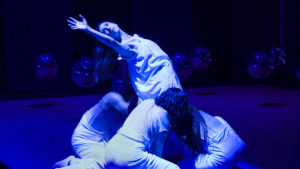
That’s a really interesting question. Traumatic moments are intense and should be very visually communicated. The libretto is quite sparse in terms of what is sung. It’s very poetic in form and “stage direction” is a rough word, but it’s written much more like a play where there’s a lot of poetic words that are meant to inspire Ellen, James and the design team. It has space for other people to create.
How does working in opera allow you to express yourself in ways other mediums do not?
“Traditional writing” is a hard term. I’m not even sure what it means. I don’t think my playwriting would fall into that category. What I thought the bridge of it was thinking of it as an emotional score. James jokes that Ellen and I are a great combination. Her music is challenging, but beautiful. The way I like to use text is very staccato. Finding the contrast and juxtaposition is really exciting and it allowed me to lean in further to the way I write more in a film or television medium that’s more visual. It’s more about what is unsaid.
Where does p r i s m land in the middle of the national dialogue that’s been happening about women and how they are treated?
Obviously the piece is timely, but it’s also eternal. It didn’t start happening because we’re talking about it now. It’s very much in tandem with the cultural dialogue for better and worse. It’s a piece about how do you deceive and how far will you go to deceive. Who will you hurt in order to survive. It’s very much about life afterwards and how coping can be a tool for destruction and survival. The danger of something being called timely means it is just about this moment and doesn’t have meaning later. What we hope for the piece is it’s the conversation. Let’s talk about this.
Do you see yourself working in opera again?
Absolutely. It’s such a fascinating medium and specifically from my part, the way that it uses text and the way writing words within it is so strange and classically has been not the most featured element.
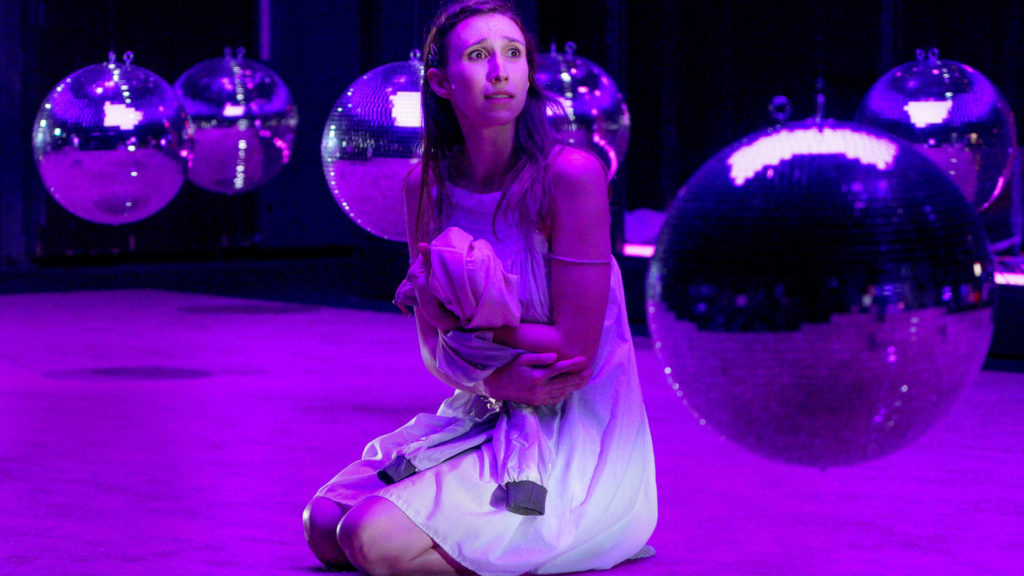
Let’s face it. When operas are referred to they seem to be solely the creation of the composer and the librettist gets very little, if any, attention.
I think it’s interesting because the way it works in theatre is that in the room the director is king because the playwright is supposed to be dead. That’s the traditional mode. They are not living because the play is old. It’s an interesting parallel to how opera functions. When you get into the physical making of the opera there are so many captains and moving parts. It takes so many people to bring it to life. I’m grateful it’s so collaborative and everybody has the same goal. It’s about the director, composer, conductor and then it’s about all the people, the librettist included, having voice and space in the room and making room for others. I think there’s so much room for collaboration and experimentation. I think it’s an exciting field.
Production photos by Lawrence K. Ho/LA Opera





